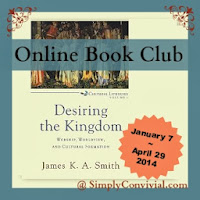We are excited that our city will be home to a new public, charter Classical school this fall. There is a good chance a few of our friends will be attending. I was seriously tempted by it, but in the end it is not the right time for my kids. I was very encouraged recently when I
read an address (full text at link) that Martin Cothran (of
Memoria Press) gave to the teachers of
Great Hearts Academy. The fact that the two are connected in any way made me excited about the impact that this school could have in our community.
If you want a great explanation of how Classical educators view the liberal arts, reading stories and why we study Latin I suggest you read this article. The beginning uses a lot of vocabulary that might be new to you - but not too difficult. Below are some highlights of the article.
An introduction to the main concepts
By the term “classical education,” I mean the system of education that emphasizes this culture [of Rome and Greece and subsequent cultures] and attempts to pass it on to the next generation. This system of education has two chief and theoretically distinct components: the liberal arts and the humanities—the traditional set of learning skills and classical content. In other words, when we say “classical education,” we mean the liberal arts and the humanities—language, mathematics and science on the one hand, and, as Matthew Arnold put it, the best that has been thought and said on the other.
What does "liberal arts" mean?
The liberal arts consisted of the three language arts of the trivium (grammar, logic, and rhetoric) and the four mathematical arts of the Quadrivium (arithmetic, geometry, astronomy, and music).
“We should not be learning the liberal arts,” explained Isocrates, making the same point, “we should have learned them.” They don’t make students better speakers or counselors, just “better learners.” “By studying them,” continues Mulroy, “one could discover thought’s basic patterns, which are what bind the seven liberal arts together. In contemporary terms, their subjects are the procedures that are hard-wired in our brains and do not differ from topic to topic.”
What does humanities mean?
The humanities consists primarily of literature and history. They are not a means to anything else other than wisdom and virtue. They are not quite an end in themselves, but they are a very fundamental means. It is through history and the humanities that we find out what we are as human beings. They tell us the story of who we are and how we should act.
Why do we read aloud?
In literature we simply read—and read aloud—classical children’s books. Children’s literature is largely a modern invention and it may be the one area (other than technological science) that we have a cultural advantage on our forebears.
One of the distinctives of our literature program is that we don’t try to smother it with analysis. I think we sometimes overdo the integration thing. When they are young children, we need to focus on a story without being called upon to impose a bunch of abstract considerations on it.
A classical teacher is called upon to teach, to delight, and to move. But when it comes to literature for young students, the greater emphasis should be upon the delight they receive from it.
Critical Thinking Skills
My thesis is that classical educators are the only ones who have a critical thinking skills program. They are the only ones who have it, but most of them don’t know they have it—at least they don’t know to call it that.
I will give you the classical critical thinking skills program in seven words. Commit it to memory. Here it is: Grammar, logic, rhetoric, arithmetic, geometry, astronomy, and music. And you can, if it makes you feel better, as Mulroy points out, replace astronomy and music with algebra and calculus.
In any case, when people ask you, as a classical educator, what you do about critical thinking skills, you can reduce it to three words: The liberal arts.
Forming and Filling Minds
The filling of the mind is the business of the humanities, but the forming of it, the liberal arts, Pycroft maintained, was the chief business of education. “The cultivation of the mind,” he said, “like that of a field, requires that we should first prepare the soil, and then sow the seed.” “You must sharpen the tools,” he says, varying the metaphor, “before you can make any progress in your work.”
If the instructor does not form the mind of his pupils before he starts filling it, said Pycroft, then “the labour of the instructor is like that of the Danaids, in mythological story: doomed to fill leaky vessels.”
What is the Trivium?
When we talk about language arts in a classical setting, we are concerned with the first three of the liberal arts: the trivium—the traditional set of linguistic mental skills. The trivium, we might say,is the classical language arts program. Grammar, the structure of language; logic, the structure of rational thought; and rhetoric, the art of persuasive expression—these are the traditional linguistic skills.
Now since we are talking here in the context of lower schools, there is not a whole lot we can say about logic. It is a subject that, because of its necessary dependence on abstraction, cannot be profitably attempted before 7th or 8th grade.
Why Latin?
So what about this problem of grammar being too abstract for students in lower elementary grades? We can help ourselves in thinking about this by properly stating what the problem is. The problem is this: It is not grammar that is too abstract for younger elementary students, but English grammar that is too abstract—or, I should say, grammar taught in English. Grammar itself is universal, and manifests itself in different languages.
English grammar is unduly abstract for anyone, much less younger students, for two reasons: First because of the nature of the English language itself, and secondly because it is our own language.
and later . . .
A foreign language solves some of our grammar problems. An inflected language solves some more. But a regular inflected foreign language—what a tool that would be! And it just so happens that we have one. And as luck would have it, this language not only provides us with a regular, structured grammar, but it happens to have provided our own language with over 60 percent of its academic vocabulary since it is the mother tongue of the culture to which we are all heirs.
It is, of course, Latin.
When to begin Latin?
Using Latin to teach grammar allows you to begin to teach grammar through Latin to students as young as 3rd or 4th grade. This is what we do at Highlands Latin School. And those schools who work with us are doing it too. Latin is to our language arts program what math is to our math/science program: It is the core subject.
From there he talks about the historical debate that led to the downplaying of Latin in the curriculum because some argued that the exactness and percision of the language would not transfer over into other areas of study. I love reading about this debate in the early 1900's it is fascinating.
Results of Studying Latin
Today you can look at the studies that indicate how well students do on the SAT verbal section according the language they studied. These studies consistently show that students who study inflected languages do better than those who study non-inflected languages. In fact, one year the top three languages were Hebrew, Greek, and Latin—all, incidentally, dead languages.
and finally
The fact is that, as much as we might like to teach our students to read Latin, most of them will never do this. But every child who studies Latin—if it is first taught as a liberal art—will achieve the mental discipline that is the most valuable result of the study of an inflected grammar.
Brander Matthews, one of the great English teachers of the 20th century, once said, “A gentleman should not be expected to know Latin: But he should at least have forgotten it.” A student who has studied Latin will probably forget his Latin. But he won’t forget his grammar.
It is a different way of thinking about education and its purposes and procedures. I am fascinated and drawn to it's simplicity and yet strength. It endured in various versions until the last century and I think it is worth considering its arguments and strengths as we think about renewing education in America. I am glad that we will have this as an option in our city.




